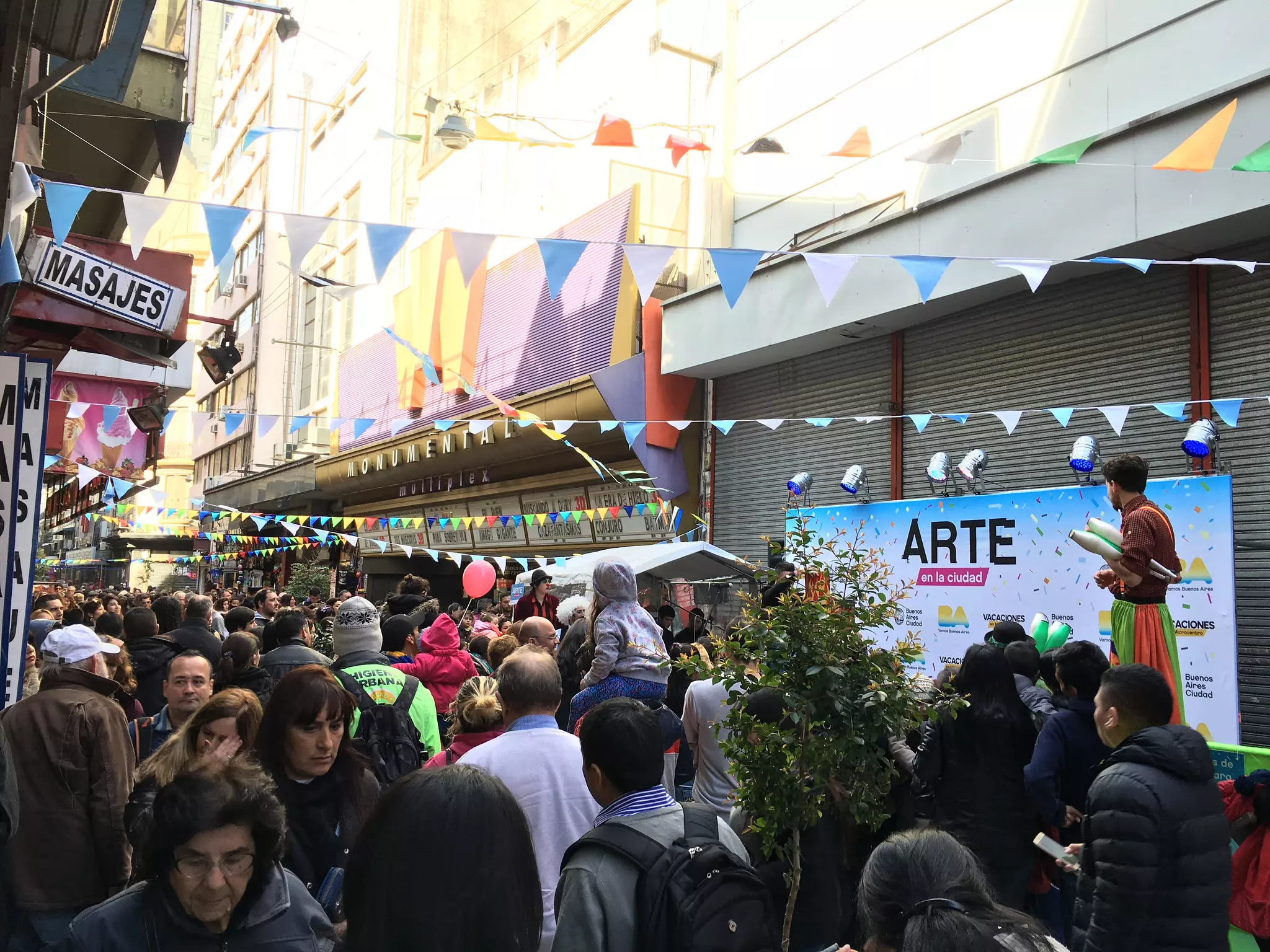Heritage Speakers in the Land of Porteños


While many IFSA-Butler students in Buenos Aires learned Spanish in schools, a good number have been speaking it as a heritage or native language. I wanted to find out what it’s like as a native or heritage Spanish speaker on IFSA-Butler’s Argentine Universities Program, so I talked to my classmates about their experiences. The following are excerpts from our conversations that discuss fitting in culturally, the IFSA-Butler experience, and expectations versus reality.
Fitting in as a Heritage Speaker Abroad
When asked how she feels about fitting in here, a student who wishes to remain anonymous told me that she has “realized that it’s not a question of ‘fitting in’. Even though I am a native Spanish speaker and have family from here, I did not grow up in Buenos Aires. I have my own way of moving through life and my own way of expressing myself that does not conform to the ways that porteños do. My Spanish is a mix of vocabulary from all of the Latinos from different countries with whom I grew up with back in the States, and sometimes people here poke fun at me for that, or they don’t even understand the word I’m using!” The student summarized: “While I thought I was coming to Buenos Aires to discover my roots, I ended up discovering that my roots (just like my Spanish) really lie in the cultural melting pot of the United States; that this is the richness that I bring to Buenos Aires, which in turn becomes part of the cultural melting pot here. It’s more beautiful than alienating when you look at it that way.”
Christian Flores of Illinois College talked to me about how he was surprised that locals understood the Mexican vocabulary he was using, “When I ask my host family and Argentine friends how they understand all the vernacular I use, they all have explained something along the lines of: any English language movie or TV show is typically dubbed in Spanish with either a neutro accent or a Mexican accent, which is considered closer to neutral. Therefore, they’ve heard most of the words I use in the context of movies or telenovelas, and they’ve picked up on it.”
On a semi-related note, regarding U.S. privilege in Buenos Aires, a student told me an interesting anecdote, “One of my professors asked me where I was from, and when I told him ‘the United States’ he responded ‘The United States of Mexico, Brazil or North America? There is more than just one ‘United States.’’ He will never let me live that one down. There is a general stigma against people from the United States. I think that it has a lot to do with how much the U.S. economy affects the Argentinean economy and with a stereotype that Americans are entitled, completely ignorant of the socioeconomic landscape of Latin America, and only come to Buenos Aires to party.”
When asked about being targets of discrimination or racism, Christian believes that despite the ethnocentrism that undeniably exists, he feels a lot more comfortable being Latino in Argentina than in the U.S. “Here, people don’t care that I’m Mexican; it doesn’t make me that much different from them. I understand that a lot of that might be based on my privilege as a light-skinned Latino, but it really doesn’t seem that the racism is as pervasive as it is in the United States,” he explained. “Among my friends and host family, they all consider those with prejudices against other Latin Americans to be very backwards. I don’t get asked if my parents are legal or not. I don’t experience the microagressions or flat out racist jokes that I hear in the U.S.” he explained. In short, Christian acknowledges that racisms exists in Argentina, but feels less affected by it personally than in the U.S.
IFSA-Butler’s Language Classes
IFSA-Butler’s castellano (Spanish) classes are definitely geared towards students who are learning Spanish as a second language. There is an undeniable focus on grammar and pronunciation, which for some students is redundant. One student explained that sometimes, “the other students are very challenged and I am not challenged enough, and this is disappointing.” For those of us who do not have much experience in Spanish or are still learning it, however, the castellano classes are a great tool, but for those who speak Spanish already, it can feel like a lost opportunity. Christian has a more positive view on these classes, however; “[my castellano professor] makes me feel very included in class because even when she knows that a lot of the grammar lessons are redundant for me, she’ll try to bring me into the conversation by asking how we use different vocabulary in the Mexican dialect or what cultural differences I’ve found here.”
Expectations vs. Reality
Both Isabela Escalona from Macalester College and Christian assumed Buenos Aires would feel more like other parts of Latin America that they have experienced. Isabela “expected Buenos Aires to be more like Mexico or my recent travel in Colombia. However, Buenos Aires is much more Eurocentric with a very different and relatively recent history. At first I didn’t like this, but I have come to appreciate the livability of the city and how in some ways it feels like I am getting a very authentic porteño experience.” Christian, Isa, and the other students I talked with all feel comfortable and content here in Buenos Aires, Argentina; further proof that this is the city for everybody.
Ellis D. | Hispanic Studies and Linguistics student | Macalester College | Argentine Universities Program, Buenos Aires Directed Research Track | 2017 | IFSA International Correspondent